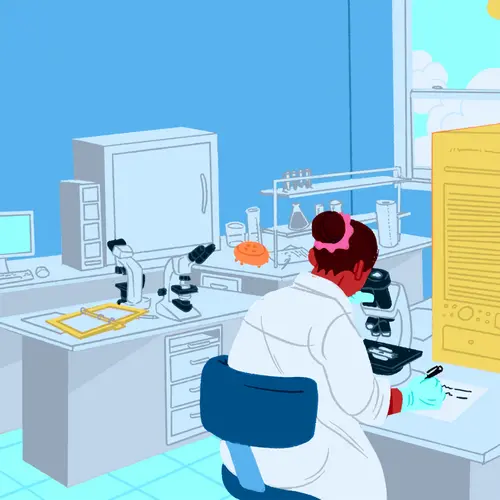Walk into any major cancer center and you're likely to see not only regular exam rooms, equipment, and chemotherapy suites, but also massage rooms, yoga mats, and maybe even a choir practice room.
This is the world of complementary and alternative medicine. Today, more research supports treatments such as acupuncture, yoga, and some diet supplements as good ways to relieve some of the side effects of chemotherapy.
The number of treatment centers that offer these options and the number of people who take advantage of them have both jumped in recent years. One study found that as many as half of all people getting cancer treatment in the U.S. used some type of complementary option.
And perhaps with good reason.
Most of the complementary treatments doctors recommend have few or no side effects, says Ted Gansler, MD. He's the director of medical content at the American Cancer Society.
It's fine to try music therapy or meditation, for example, while you follow your standard treatment plan, he says.
Here's a rundown of complementary treatments that might help relieve some of the side effects you can have during chemo.
Acupuncture
This technique probably has more research backing it up than any other complementary treatment for cancer, says Jeffrey D. White, MD. He's the director of the National Cancer Institute's Office of Cancer Complementary and Alternative Medicine.
Acupuncture involves getting tiny, thin needles placed into specific parts of the body. Scientists think it releases "feel-good" brain chemicals, such as dopamine and serotonin.
When people get acupuncture along with their medical treatments, it seems to do a good job of easing nausea and vomiting, two of the most common side effects of chemo, Gansler says.
Diet Supplements
There's not a lot of evidence to show that supplements work for chemo side effects, with one possible exception: ginger. One large study found that people with cancer who took 0.5-1 gram of ginger in capsules for 6 days had less nausea and vomiting than people who took a sugar pill.
Massage
This can help relieve the fatigue that chemo causes. It might also improve nausea, anxiety, and pain.
Massage might not be for everyone who gets chemo, though. If your cancer has spread to your bones, or if your skin is sensitive from radiation treatment, you might end up feeling worse. Massage might also cause bruises if you have low levels of platelets in your blood (a common chemo side effect) or if you're taking warfarin or another blood thinner.
Check with your doctor before you book an appointment for a massage. Think about asking for a professional who has special training in working with people who have cancer.
Mind-Body Approaches
This is the name for methods that aim to build the mind's ability to affect what's going on in the body. They can include meditation, guided imagery, and relaxation therapy, as well as general stress management techniques.
Self-hypnosis might help relieve the hot flashes and other symptoms of menopause that sometimes come with chemo, White says. One study found that women who used this method had about four fewer hot flashes a day, as well as less anxiety and depression, compared with women who did not use it.
In other research, guided imagery and muscle relaxation exercises helped nausea and vomiting. They also lowered anxiety and depression for women before they started chemo.
Yoga and Tai Chi
This is the name for methods that aim to build the mind's ability to affect what's going on in the body. They can include meditation, guided imagery, and relaxation therapy, as well as general stress management techniques.
Self-hypnosis might help relieve the hot flashes and other symptoms of menopause that sometimes come with chemo, White says. One study found that women who used this method had about four fewer hot flashes a day, as well as less anxiety and depression, compared with women who did not use it.
In other research, guided imagery and muscle relaxation exercises helped nausea and vomiting. They also lowered anxiety and depression for women before they started chemo.
Music Therapy
This is a fairly new option. It can involve either listening to music or making music. It can cut stress, and some research has shown it helps with nausea and vomiting.
How to Choose
You should always talk about any complementary treatments for side effects with your cancer doctor before you try them.
They might know which of these methods can help ease your side effects and which ones might worsen problems, Gansler says.
When you’re choosing a therapist, check their credentials, experience, and licensing. "You need to find people who have the right kind of training who understand how to use [the therapy] in cancer situations," White says.

